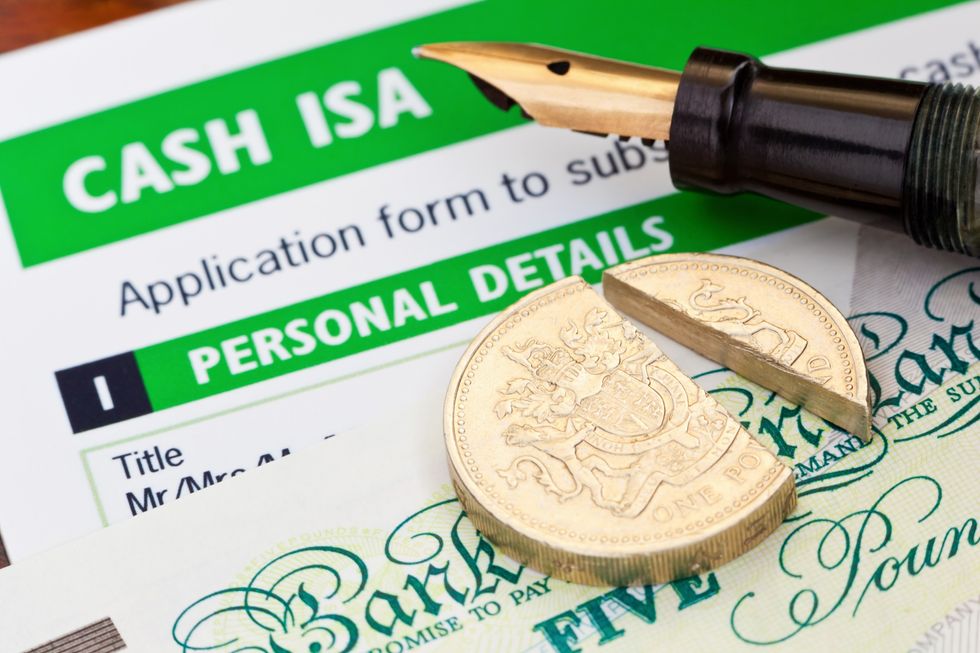Sir John Redwood shares 'worry' for taxpayer as British Steel scraps redundancies: 'What we need is nationalisation!'
GBNEWS
Experts warn savers are being caught out by misunderstood penalty on early withdrawals
Don't Miss
Most Read
Trending on GB News
Savers hit with penalties for withdrawing their own money from Lifetime ISAs may soon see relief as the Government confirms it is considering reforms to the scheme.
Treasury minister Emma Reynolds has stated that the government is "looking at ISA reform" during a recent Treasury Committee meeting.
Tom Selby, AJ Bell director of public policy said: "Reynolds may have kept us guessing on the detail of the reforms under consideration and the timing of any announcement, but this was as clear a sign as any that ISA reform is coming."
The Lifetime ISA, launched in 2016, has come under fire for its harsh 25 per cent withdrawal charge, which applies if funds are used for anything other than buying a first home under £450,000, reaching the age of 60, or being diagnosed with a terminal illness.
The penalty has led to widespread frustration, with many savers feeling they’re being unfairly charged for accessing their own money.
While the scheme offers a 25 per cent government bonus on savings, it also imposes a 25 per cent penalty on withdrawals that don’t meet the qualifying criteria.
What many don’t realise is that this penalty doesn’t just take back the bonus — it also reduces the saver’s original contribution, meaning they could end up with less than they put in.
 As the new £20,000 ISA allowance resets, experts say now could be the ideal time to fix savings to make the most out of one's moneyGETTY
As the new £20,000 ISA allowance resets, experts say now could be the ideal time to fix savings to make the most out of one's moneyGETTYHMRC's "Understanding the Use of the Lifetime ISA" report revealed that even financially literate savers were unaware of this fact.
Once savers understand this reality, there is "broad consensus that the current rules feel unfair," according to Shaun Moore, tax and financial planning expert at Quilter.
Many savers report feelings of resentment at being charged to access what they view as their own money.
The scale of the problem has been revealed through data obtained by smart money app Plum under Freedom of Information rules last year October.
Around 74,000 savers were hit with penalties in 2022-23, including nearly 16,000 who were forced to hand back £1,000 or more.
More than 6,100 savers faced penalties exceeding £2,000, while 851 potential homebuyers were fined over £5,000.
The most severely affected savers faced devastating financial losses, with the top 25 penalties imposed by HMRC averaging an eye-watering £11,000 each.
This represents a significant portion of what would typically constitute a first-time buyer's deposit.

The top 25 penalties imposed by HMRC averaging an eye-watering £11,000 each
GETTYShaun Moore of Quilter said: "Savers reported feelings of resentment and frustration at the idea of being charged to access what they saw as their own money, particularly when providers are profiting from holding those funds."
Moore noted that many savers support reducing the withdrawal charge to 20 per cent, which would at least allow them to break even if circumstances forced them to access their savings.
This sentiment was "particularly strong among lower-income 'Irregular' and 'Cushioned Savers', who felt they were being penalised for financial instability rather than poor planning."
During the Treasury Committee meeting, Reynolds noted the flexibility of the LISA's dual purpose, saying: "You could argue that one of the benefits of the dual purpose is it's very flexible."
She suggested someone unable to use it for a home purchase "could actually use it for a pension later in life."
 ISAs are useful tools for those looking to save more than the personal savings allowance threshold without having to pay tax GETTY
ISAs are useful tools for those looking to save more than the personal savings allowance threshold without having to pay tax GETTYHowever, Tom Selby, director of public policy at AJ Bell, expressed disappointment that "lowering the punitive 25 per cent early withdrawal charge on Lifetime ISAs seems low on her priority list."
Selby added: "Charges should reclaim any government bonus, but taking away an additional 6.25 per cent of the individual's own investment is harsh." He concluded that "ISA reform is coming" with changes likely from April 2026.
Moore believes the Lifetime ISA is trying to be "too many things at once" as a hybrid house deposit account and retirement vehicle.
"From a policy perspective, the Lifetime ISA is trying to be too many things at once," he said.
To improve transparency and engagement, Moore suggests the government should simplify the product and rebrand it as a 'First Home Account'.
This would better reflect how the product is used in practice and help rebuild trust among savers.
"A product that penalises people more than they expect, in ways they don't understand, risks doing more harm than good," Moore warned.
"The LISA has real potential, but only if it's made clearer, fairer, and fit for purpose."







